The main symptoms of kidney disease you need to know
According to Prevention , your kidneys play an essential role in your body. They filter your blood, removing waste and excess fluid. They also perform many other important functions, such as balancing electrolytes, regulating blood pressure, activating vitamin D (which helps you absorb calcium and keep your bones strong), and helping your body produce red blood cells.
Kidney disease affects more than 1 in 7 Americans, about 35.5 million people, but because the symptoms of the disease are hard to detect, many people don't realize they have it.
Symptoms of kidney damage are often subtle and by the time you notice it, the damage is often severe, says family physician Jeremy Allen. You can lose up to 90% of your kidney function without any obvious symptoms.
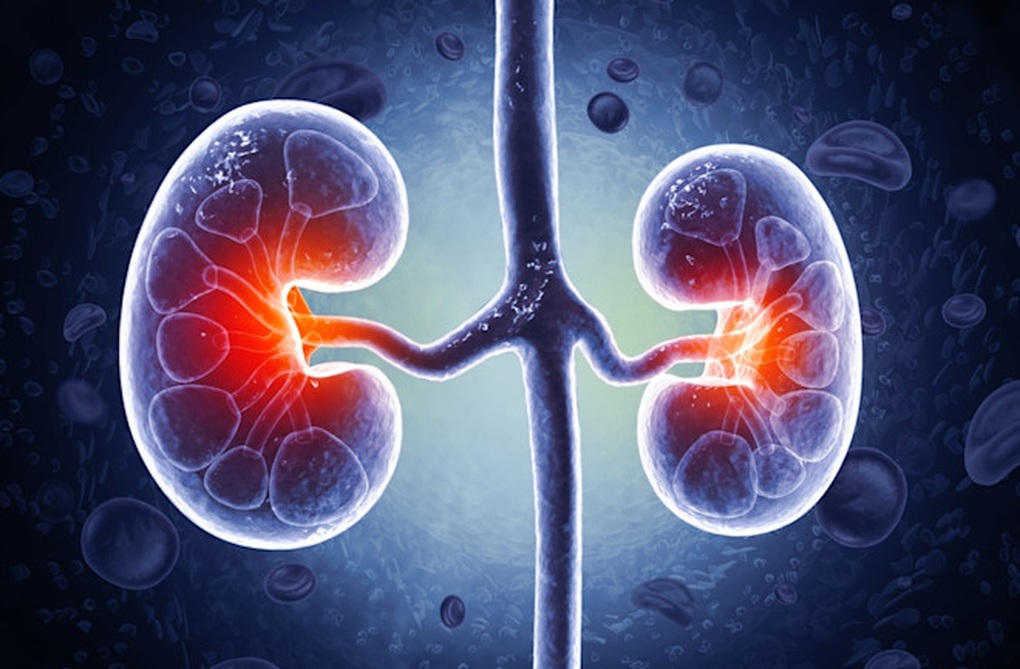
Symptoms of kidney disease often occur silently (Illustration: Shutterstock).
A great way to protect yourself is to control your blood sugar and blood pressure. “High blood pressure and diabetes are the main culprits, causing at least two-thirds of kidney failure.
You may also have a complete blood count done during a routine physical exam and review any medications you are taking. If your blood test shows a high creatinine level, your doctor may order additional blood tests, urine tests, or kidney scans.
In addition, some drugs are toxic to the kidneys such as some drugs in the group of pain relievers, antipyretics, non-steroidal anti-inflammatory drugs, some antibiotics...
Although kidney disease often progresses silently, there are some warning signs that can help you catch it early, as long as you pay attention. Here are five warning signs that are often overlooked:
Persistent fatigue and weakness
According to the Times of India , kidney failure leads to a buildup of toxins in the blood, affecting energy levels. In addition, when the kidneys do not produce enough erythropoietin, a hormone responsible for stimulating red blood cell production, the kidneys can cause anemia. This causes chronic fatigue, lack of concentration, and shortness of breath with mild activity.
Most patients consider it to be normal exhaustion or aging and diagnosis is delayed.
Change in urination habits
Changes in the frequency, color, or appearance of urine are often early signs of kidney problems but are rarely taken seriously. Nocturia or frequent urination at night, foamy urine (indicating protein loss), blood in the urine, or very dark urine are all signs that the kidneys may be damaged.
Ignoring these changes even when they seem trivial can allow the disease to progress silently.
Swelling in the feet, ankles, or face
If the kidneys are unable to remove excess sodium and fluid from the body, this can lead to noticeable swelling (edema), especially in the legs and around the eyes. Patients often blame the swelling on prolonged standing or poor diet, but it can be a sign of kidney failure. Early detection and testing are important.
Persistent itching or skin changes
One of the less common signs of kidney failure is persistent itching. This is caused by waste products in the blood and an imbalance of minerals such as calcium and phosphorus. Dry, flaky skin and a persistent urge to scratch, especially in the absence of a dermatological cause, should be evaluated by a kidney checkup.
Anorexia, nausea
As kidney function deteriorates, the body accumulates urea toxins, causing gastrointestinal symptoms such as a metallic taste in the mouth, bad breath (urea odor), nausea or loss of appetite. These symptoms are often misinterpreted as gastrointestinal problems, leading to misdiagnosis or delayed treatment.
How to improve kidney health
Improving kidney health involves adopting healthy lifestyle habits. Stay hydrated by drinking enough water every day to help your kidneys flush out toxins. Also, eat a balanced diet rich in fruits, vegetables, and whole grains, and limit salt, sugar, and processed foods to reduce stress on your kidneys.
You also need to control your blood pressure and blood sugar, both of which are major causes of kidney damage. Avoid excessive use of over-the-counter pain relievers and limit your alcohol intake. Quit smoking, which impairs kidney function. Maintain a healthy weight and exercise regularly.
Regular health checkups can help detect early signs of kidney problems.
Foods good for kidneys:
- Berries (like blueberries and strawberries).
- Apple.
- Red grapes.
- Cauliflower.
- Cabbage.
- Garlic.
- Onion.
- Bell pepper.
- Olive oil.
- Egg whites.
- Fish rich in omega-3s (such as salmon and mackerel).
- Skinless chicken.
- Pineapple.
- Radish.
- Water (drinking enough water is essential).
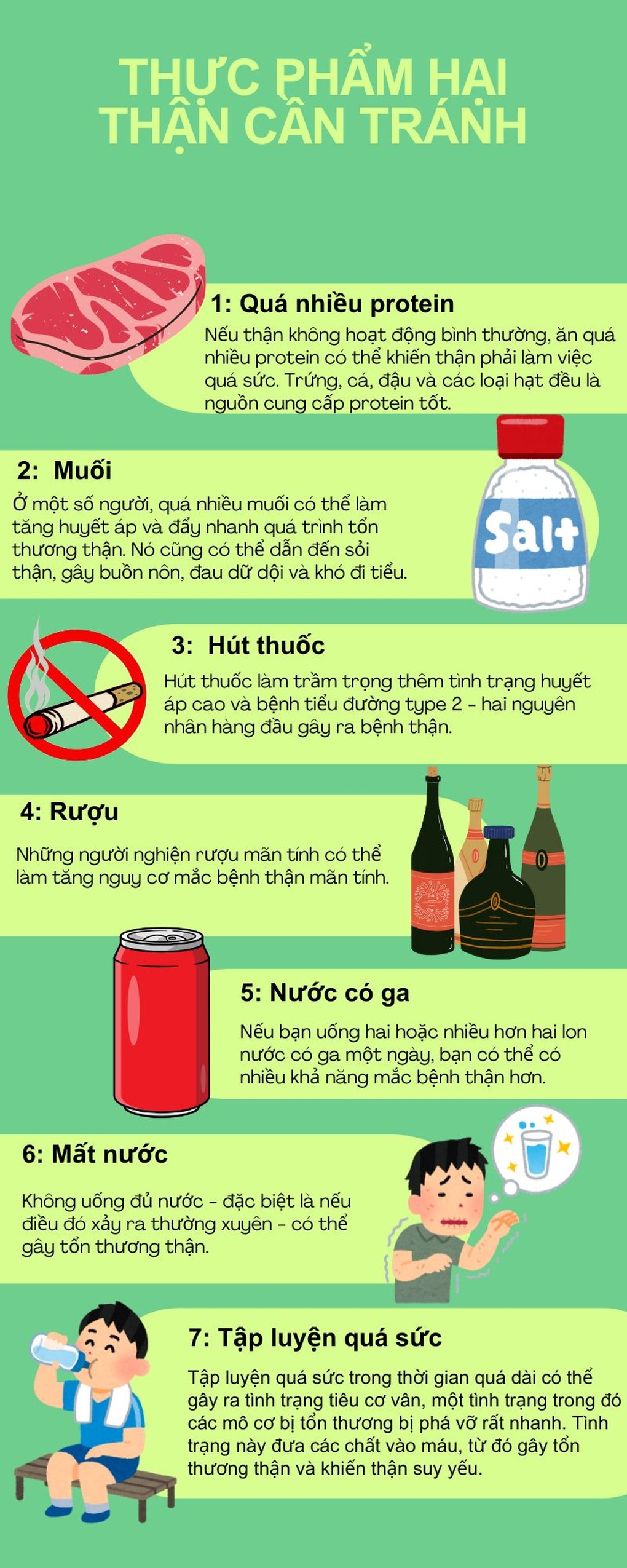
Source: https://dantri.com.vn/suc-khoe/5-dau-hieu-tham-lang-canh-bao-than-bi-ton-thuong-20250704074931931.htm



![[Photo] General Secretary To Lam presents the 45-year Party membership badge to comrade Phan Dinh Trac](https://vphoto.vietnam.vn/thumb/1200x675/vietnam/resource/IMAGE/2025/8/28/e2f08c400e504e38ac694bc6142ac331)
![[Photo] Prime Minister Pham Minh Chinh meets with Speaker of the New Zealand Parliament Gerry Brownlee](https://vphoto.vietnam.vn/thumb/1200x675/vietnam/resource/IMAGE/2025/8/28/cec2630220ec49efbb04030e664995db)

![[Photo] General Secretary To Lam attends the opening ceremony of the National Achievements Exhibition](https://vphoto.vietnam.vn/thumb/1200x675/vietnam/resource/IMAGE/2025/8/28/d371751d37634474bb3d91c6f701be7f)
![[Photo] Politburo works with the Standing Committee of Cao Bang Provincial Party Committee and Hue City Party Committee](https://vphoto.vietnam.vn/thumb/1200x675/vietnam/resource/IMAGE/2025/8/28/fee8a847b1ff45188749eb0299c512b2)
![[Photo] Red flag with yellow star flutters in France on National Day September 2](https://vphoto.vietnam.vn/thumb/1200x675/vietnam/resource/IMAGE/2025/8/28/f6fc12215220488bb859230b86b9cc12)



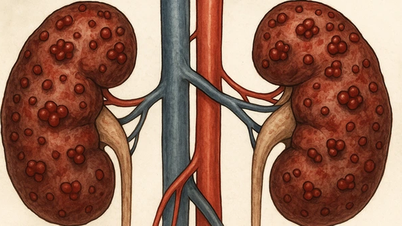

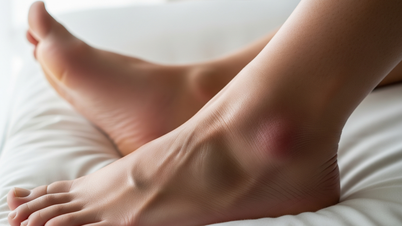
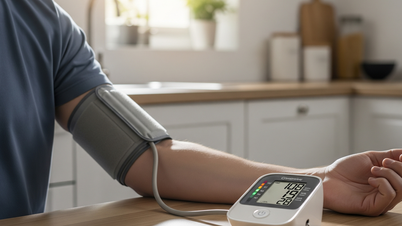















































































Comment (0)